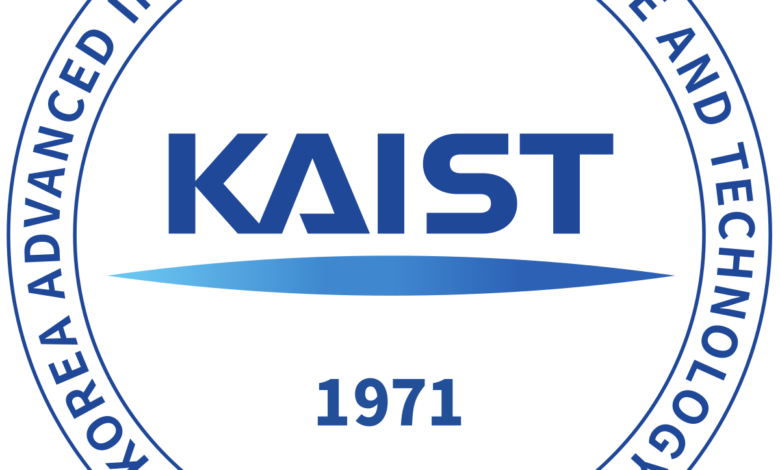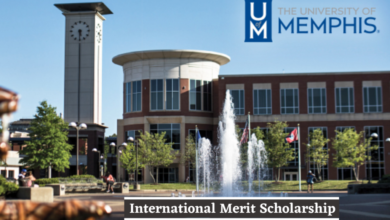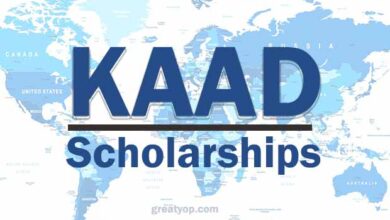STUDY IN SOUTH KOREA: KAIST UNIVERSITY GRADUATE SCHOLARSHIPS FALL 2024
Deprecated: preg_split(): Passing null to parameter #3 ($limit) of type int is deprecated in /home4/streakne/public_html/wp-content/themes/jannah/framework/functions/post-functions.php on line 793

Deprecated: htmlspecialchars(): Passing null to parameter #1 ($string) of type string is deprecated in /home4/streakne/public_html/wp-includes/formatting.php on line 4732
Study In South Korea: KAIST University Graduate Scholarships Fall 2024
Submit your application now for the KAIST University Graduate Scholarships for Fall 2024 in South Korea. These scholarships provide complete funding for overseas students in several subjects, including natural sciences and business. KAIST offers scholarships that cover tuition, monthly stipends, and health insurance to attract a wide range of talented individuals from around the world to join its prestigious academic community in Daejeon.
Take advantage of this chance to study in South Korea and achieve your academic goals. The application date is March 25, 2024. Please see the section below for more details and instructions on how to apply.
Academic Level:
KAIST University Graduate Scholarships are available to any students enrolled in Masters or PhD programs at KAIST in South Korea for the fall of 2024. The funding for these scholarships is complete.
Subjects currently accessible:
The available subjects for study under this fellowship program are as follows:
- Natural Sciences
- Bioengineering
- Science
- Engineering
- Liberal Arts
- Business
- Convergence Science
Benefits of the scholarship:
KAIST provides many scholarships to assist international students in funding their graduate education. Below is a comprehensive analysis of the possible choices:
The KAIST University Scholarship fully covers the entire tuition expenses for the entire course of your study.
- Master’s Degree: 4 semesters
- The Master’s-Ph.D. The integrated program consists of a total of 10 semesters.
- Doctor of Philosophy Degree: 8 semesters
Monthly Allowance:
- Tuition for Master’s students is KRW 350,000.
- The fee for Ph.D. students is KRW 400,000.
National healthcare coverage:
KAIST pays for your monthly National Health Insurance premium.
Supplementary funding options:
A prestigious scholarship program that KAIST offers is the KAIST Global Presidential Scholarship (KGPS). This esteemed scholarship provides even more substantial financial support:
- Four semesters of full tuition.
- Monthly Stipend: 1,000,000 Korean Won
- Scholarships available from sources outside of the organization:
The Global Korea Scholarship (GKS) is a program that provides scholarships on a global scale. This scholarship is financed by the Korean government and encompasses a range of charges, such as flights, monthly stipends, tuition fees, and additional costs. Details regarding the GKS program can be accessed at this location.
Employment on a part-time basis:
Although not an official scholarship, numerous overseas students opt to engage in part-time employment in Korea to augment their earnings. Engaging in this activity can provide an excellent opportunity to acquire useful expertise and experience full cultural integration while pursuing your academic pursuits.
Eligible Nationalities:
This award is available to students from any country throughout the world.
Requirements for eligibility:
Eligibility for the KAIST University Scholarship for the Fall 2024 intake.
Who is eligible to apply?
This award is specifically available to international students who are not Korean nationals.
Educational History:
- Master’s applicants are required to provide evidence of holding a bachelor’s degree.
- Ph.D. applicants are required to provide evidence of holding a Master’s degree.
Requirements for proficiency in the English language:
Approximately 80% to 90% of courses at KAIST are taught in the English language. To showcase your ability in English, you must attain a minimum score on one of the following examinations:
- The TOEFL iBT score is 83.
- Score on the IELTS exam: 6.5
- The user’s TOEIC score is 720 and their TEPS score is 326.
Waiver of the English Proficiency Requirement:
If you satisfy any of the following circumstances, you may qualify for an exemption from the English proficiency exam requirement:
Citizenship and Education:
You are a citizen and have finished your prior education in one of the following countries: Antigua and Barbuda, Australia, the Bahamas, Barbados, Belize, Canada, Dominica, Grenada, Guyana, Ireland, Jamaica, Malta, New Zealand, St. Kitts, St. Lucia, St. Vincent, Trinidad and Tobago, the United Kingdom, or the United States of America.
Citizenship and educational attainment:
To be eligible, you must possess citizenship in one of the following countries and have completed an academic qualification from the same country: Botswana, Cameroon, Eswatini, Ethiopia, Fiji, Gambia, Ghana, India, Jamaica, Kenya, Kiribati, Lesotho, Liberia, Malawi, the Marshall Islands, Mauritius, the Federated States of Micronesia, Namibia, Nauru, Nigeria, Pakistan, Palau, Papua New Guinea, the Philippines, Rwanda, Samoa, Seychelles, Sierra Leone, Singapore, Solomon Islands, the Republic of South Africa, Sudan, Tanzania, Tonga, Tuvalu, Uganda, Vanuatu, Zambia, and Zimbabwe.
Procedure for Applying:
Seeking the KAIST University Scholarship for the Fall 2024 Intake
Are you prepared to embark on your educational voyage at KAIST? To apply for the Fall 2024 scholarship, follow these instructions:
Complete and submit your application online: Proceed to the application site at https://apply.kaist.ac.kr/InterApply/ and fill out the online application form.
Application Fee: Submit a non-refundable application fee of up to USD 80 or KRW 80,000.
Official Notice and Additional Details:
To access the official scholarship announcement and obtain detailed program details, please visit the official website provided.
CLICK HERE TO VISIT THE OFFICIAL WEBSITE
What are the benefits of studying in South Korea?
Highly regarded degrees are available for study in Korea on a global scale
South Korean colleges are widely acknowledged and esteemed worldwide for offering top-tier education. There are numerous esteemed establishments, most of which are situated in Seoul, as it serves as the capital and a center for academic pursuits.
Seoul National University (SNU), KAIST, Yonsei, POSTECH, Korea University, and SKKU rank in the top 100 universities globally. Their global renown stems from their exceptional education and state-of-the-art infrastructure.
South Korea boasts a wide array of educational institutions, making its academic landscape highly diversified. The program encompasses a wide range of highly sought-after disciplines, including economics, science, technology, management, engineering, finance, fashion, and social science, among others.
South Korea ranks among the highest-performing OECD countries in terms of academic achievement and competitiveness. Additionally, it receives good rankings in measures of intellectual abilities and educational achievements.
Cost-effective schooling
Korean universities implement a uniform tuition fee for both international and domestic students to enhance their appeal to international students and foster a global academic atmosphere.
Private universities have a higher price tag compared to public universities. Humanitarian programs are less costly compared to medical and engineering programs. At the commencement of the program, newly admitted students are required to make a single payment for both the entry and enrollment fees. Usually, students make payments on an annual or semi-annual basis.
The annual tuition for undergraduate programs varies between 4,000 and 20,000 USD, depending on the university and program. On average, it is around 11,000 USD. Scholarships are mostly offered by universities and government entities. These grants are quite advantageous for students.
Living expenses are economical.
Due to the comparatively affordable expenses for food, transportation, and accommodation, studying in Korea is both viable and pragmatic. School canteens offer affordable, top-notch meals for a nominal fee. Supermarket groceries are abundant and affordably priced. A monthly food budget of USD 300 is reasonable if you are willing to be somewhat generous with your finances.
Metropolises like Seoul and Busan boast highly efficient, cost-effective, and eco-friendly public transit networks. Public transportation is cost-effective; residing in the city where you attend school allows you to manage with a minimal daily expenditure of a few dollars. The Internet and mobile services are characterized by their high speed and affordability. Medical insurance is essential for international students.
Deprecated: htmlspecialchars(): Passing null to parameter #1 ($string) of type string is deprecated in /home4/streakne/public_html/wp-includes/formatting.php on line 4732



